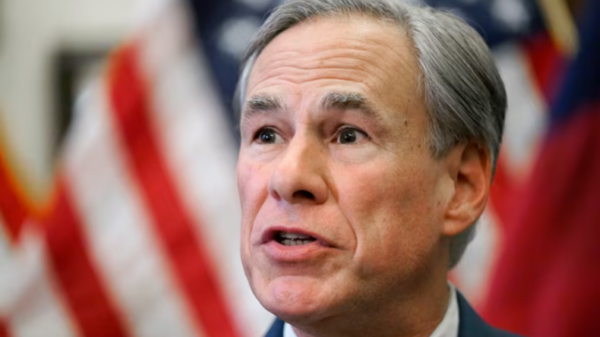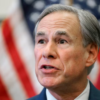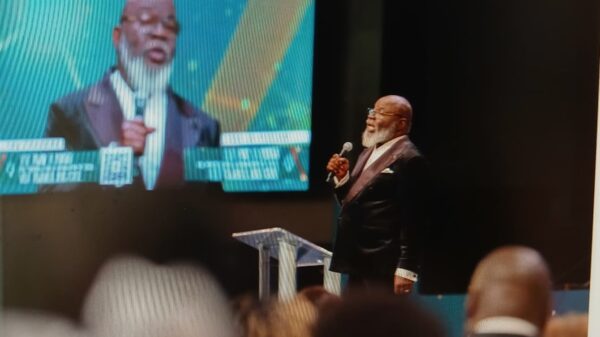Federal regulators could OK the vaccines, which were tested at about one-third the dosage approved for adults and teens, in early November.

By Catherine Marfin, Maggie Prosser, Hojun Choi and Wendy Selene Pérez
With the White House detailing plans Wednesday for distributing COVID-19 shots to young children, health care providers and parents across North Texas can begin preparing for the possibility of inoculating 5- to 11-year-olds in early November.
The Biden administration’s announcement comes ahead of the expected expansion of Pfizer-BioNTech’s emergency use authorization for its coronavirus vaccine to children ages 5 to 11. The shot is approved now only for kids 12 and older.
As controversial as vaccines have become, many parents have said they are eager for their children to get the protection the shots offer. Health care providers are beginning to consider the logistics of a new wave of vaccine distribution.
Specifics still being decided
The Food and Drug Administration is expected to meet at the end of the month to review data on the shots, which were tested at about one-third the dosage approved for adults and teens. The Centers for Disease Control and Prevention has scheduled an advisory committee meeting for Nov. 2-3 to make its recommendation. The shots, and the smaller needles needed for injecting kids, could be shipped to providers within hours of that decision.
Texas health officials are beginning to work on a plan to roll out the pediatric shots, said Lara Anton, a spokeswoman for the state health department.
Anton said the department has given health care providers until the end of Thursday to submit their initial requests for the amount of pediatric vaccines they expect they’ll need. The health department will then turn in the orders to federal health agencies, she said.
Although she did not specify how many doses of the vaccine Texas will get once it’s formally approved for the younger age group, Anton said she expects it to be a large number. The health department expects to know more once federal health authorities convene in the coming weeks.
The White House said the tens of thousands of pharmacies and grocery chains that already are distributing the shots to adults will expand their efforts to include the pediatric doses.
Representatives for CVS Pharmacy, Walgreens and Kroger said they are awaiting official approval and did not offer specifics on vaccine rollout at their stores.
North Texas health care systems also said the details of vaccine distribution for kids won’t be known until federal regulators make their recommendation.
Luisa Barrientos, a spokeswoman with Children’s Health system, which operates medical centers in Dallas and Plano, said that once the shots are approved, Children’s will offer the vaccine to patients who have been treated in the system’s clinics or hospitals.
Cook Children’s Health Care System in Fort Worth also will offer the vaccine at select pediatrician offices and vaccination clinics. But the medical center is still working on logistics of those clinics, and more information will be available after the vaccine is approved, spokeswoman Kim Brown said.
Parkland Hospital also said it was awaiting federal guidance before making any plans for distribution.
Dr. Philip Huang, director of Dallas County Health and Human Services, said the county is looking into working with school officials to distribute the shots.
“We have been in discussion with the school superintendents and staff about what will be most effective,” Huang said. “We are looking at setting up pop-ups at schools to support school districts in addition to the other sources.”
Shots to be given by pediatricians
According to the Biden administration, more than 25,000 primary care providers and pediatricians across the U.S. already have signed on to distribute the shots to children.
Park Cities Pediatrics in University Park is among those offices, said Dr. Kristen Kammerer. The clinic sent in its initial request Wednesday for 600 doses of the pediatric shot, she said.
She said parents who take their kids to her practice are “really ready for their kids to be protected and [ready to] do something more tangible … to protect their kiddos — that’s more than just begging adults to get vaccinated or monitoring what the kids are up to.”
In the early days of the pandemic, younger children were not thought to be at high risk of severe illness if they contracted COVID-19. But with the spread of the highly contagious delta variant in recent months, children have been more seriously affected by the disease.
During the most recent COVID-19 surge over the summer, pediatric COVID-19 hospitalizations were seen at unprecedented levels, peaking in early September. Providers told The Dallas Morning News that they also saw an uptick in kids testing positive for the disease in August and September compared with prior months.
“When this pandemic started, there was this myth that kids don’t get sick, die or get hospitalized,” said Dr. Sangeeta Elhence, a pediatrician at Lake Lewisville Pediatrics, which cares for hundreds of children in North Texas each month. “But the delta variant has totally changed that.”
Health care providers said the decision to allow primary-care providers and pediatricians to distribute the shots more widely was a good move for the younger age group. Children who may be afraid of needles or vaccines might be more comfortable getting the shot from a provider they’re used to seeing.
“One thing I am hearing is that parents want us to do the vaccinations,” Elhence said. “For the older kids we had them go to the pharmacy, but for the younger kids, parents want to bring them to our office.”
Dr. Seth Kaplan, past president of the Texas Pediatric Society, said he has seen a lot of “excitement” and “pent-up demand” for the vaccine among families at his practice in Frisco.
“It’s an exciting time to help protect those who have not been able to be protected thus far,” he said. “This is our chance to really get ahead … and protect the community because as long as there continues to be a reservoir of unvaccinated individuals, the chances of it spreading to more vulnerable members of the community remain higher.”
While the distribution for the vaccine for 12- to 17-year-olds was “choppy,” Kaplan said he expects health care facilities will be revving to go as soon as the vaccine is approved for younger kids.
His practice has put in an order with the state health department for 300 doses — the smallest allotment of vaccines available — which he said is more than enough for his small practice.
The minimum number of doses that a COVID-19 vaccine provider will be required to order per shipment is expected to be lower than the minimum doses required for vaccines for people who are 12 years or older, according to CDC guidelines.
Huang said the lower minimum requirement for doses could make it easier for primary-care providers in North Texas to offer COVID-19 vaccines out of their private offices.
Kammerer said that in her practice, she has had a wide range of responses from parents, from those who are extremely eager for the vaccine to those who are already saying they don’t want their kids to get the shots.
Although she’s looking forward to the possible approval, she’s waiting to review the data that will be presented to federal regulators before making a firm recommendation to her patients.
She said parents who are eager for the shots should have patience with their pediatricians as they work out logistics and recommendations.
“I’ve had friends ask me, ‘Should I call my pediatrician right now and see when they can give it?’ ” she said. “Give them a week or two to figure out their logistics, like if they’re going to do it during clinic, or on a weekend. … Stay in touch, maybe follow your doctor on Facebook or make sure you’re signed up for emails, but don’t call them every day.”
Some parents eager, some hesitant
Diana Arrezola, 28, of South Dallas is among parents who are eager to get their children vaccinated.
She said she doesn’t care where her son, 9-year-old Miguel Reyes, gets vaccinated as long as he has a shot in his arm.
“I just want him to be vaccinated, wherever he can go,” Arrezola said. “I will call his … [pediatrician], I will go to the pharmacy. The first one that gives me the appointment, I’m there.”
Arrezola said her family’s experience with COVID-19 is a big motivator for getting her son the shot.
“My brother-in-law got COVID, and he got really ill. I also got it five or six weeks ago,” she said. “I was bad, really bad, but I feel the vaccine helped me not to get seriously ill.”
Other North Texas parents, however, expressed more hesitation.
María Felicitas Landa, 40, who lives in Dallas, has two sons who will soon become eligible, 10-year-old Alexander Calvillo and 7-year-old Gabriel Calvillo. She said she wants to get them COVID-19 shots, but not right away.
Landa said she’s likely to follow the same steps she took when her daughter, 14-year-old Kimberly Calvillo, got immunized.
“I had Kimberly vaccinated because she has asthma, and I knew that this year she had to attend classes in person,” Landa said. “I did not have her vaccinated immediately. … I waited about two months to see how other children reacted, and that is what I am planning to do [with my sons].”
She said she’s concerned her younger kids won’t be able to express how they feel after the shots if they experience side effects.
“When you get vaccinated [as an adult] you know what is happening to your body with side effects, but with kids, they do not know how to distinguish,” she said.
Dr. Beth Kassanoff, president of the Dallas County Medical Society, said that though the vaccines are very safe, parents who have concerns about them should talk with their primary-care physicians.
“Most parents are going to be really excited to get their kids vaccinated,” she said. “… I think parents [want to] have more confidence in their kids ability to fight COVID infections.”









You must be logged in to post a comment Login